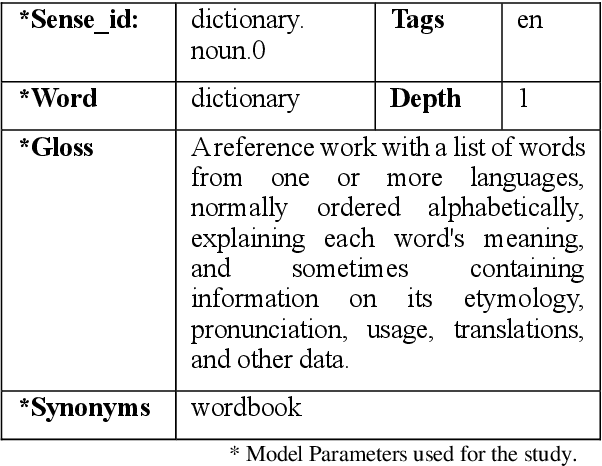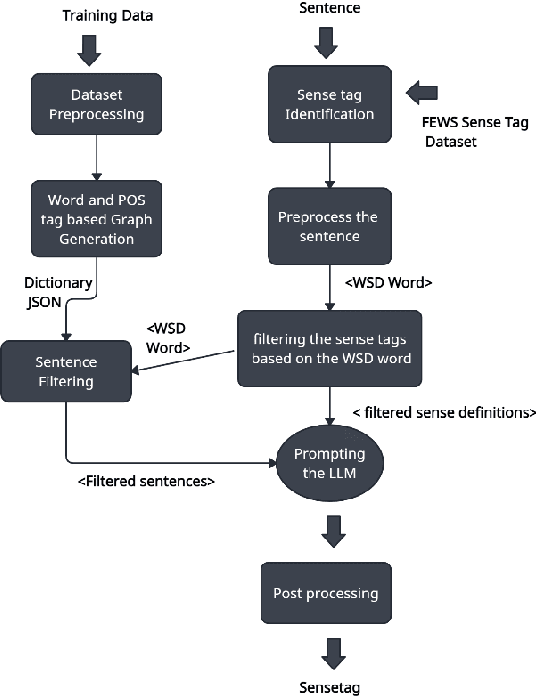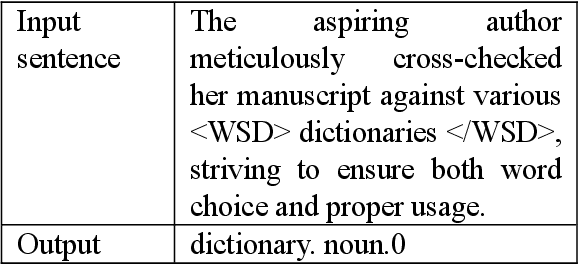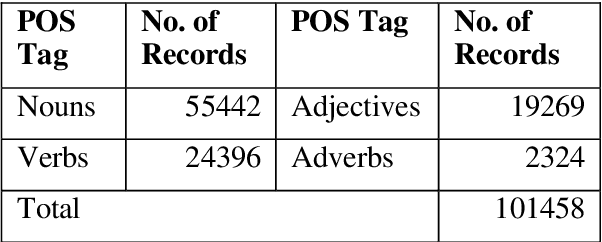Can LLMs assist with Ambiguity? A Quantitative Evaluation of various Large Language Models on Word Sense Disambiguation
Paper and Code
Nov 27, 2024



Ambiguous words are often found in modern digital communications. Lexical ambiguity challenges traditional Word Sense Disambiguation (WSD) methods, due to limited data. Consequently, the efficiency of translation, information retrieval, and question-answering systems is hindered by these limitations. This study investigates the use of Large Language Models (LLMs) to improve WSD using a novel approach combining a systematic prompt augmentation mechanism with a knowledge base (KB) consisting of different sense interpretations. The proposed method incorporates a human-in-loop approach for prompt augmentation where prompt is supported by Part-of-Speech (POS) tagging, synonyms of ambiguous words, aspect-based sense filtering and few-shot prompting to guide the LLM. By utilizing a few-shot Chain of Thought (COT) prompting-based approach, this work demonstrates a substantial improvement in performance. The evaluation was conducted using FEWS test data and sense tags. This research advances accurate word interpretation in social media and digital communication.
 Add to Chrome
Add to Chrome Add to Firefox
Add to Firefox Add to Edge
Add to Edge